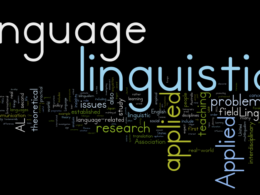Hardest Language to Learn in the World
Unraveling the Linguistic Challenges
Learning a new language can be an exciting and rewarding experience, but it’s no secret that some languages present a more formidable challenge than others. There are some Hardest Language to Learn in the World , In this article, we will explore the factors that make a language difficult to learn, identify the top five hardest languages, discuss effective language learning strategies, and highlight the benefits of mastering challenging tongues. So, buckle up and embark on this linguistic journey!
Table of Contents
What Makes a Language Hard to Learn?
Complex Grammar and Syntax
One of the primary stumbling blocks for language learners is encountering intricate grammar rules and syntax. Languages like German, for instance, have a complex system of noun genders, verb conjugations, and sentence structures that can perplex even the most determined learners.
Unfamiliar Writing Systems
Another significant hurdle arises when learners are confronted with languages that employ non-Latin scripts. For native English speakers, mastering characters and symbols from languages like Mandarin Chinese or Arabic can be a daunting task.
Pronunciation Challenges
The way a language sounds can also present challenges. Some languages have unique sounds that don’t exist in other languages, making pronunciation a genuine struggle. For instance, the tonal nature of Mandarin Chinese or the guttural sounds in Arabic can be difficult for many learners to grasp.
Vast Vocabulary
Languages with an extensive vocabulary can overwhelm learners. Memorizing thousands of words and understanding their nuanced meanings requires dedication and practice. Hungarian, for example, boasts a rich vocabulary that sets it apart as a difficult language to learn.
Top 5 Hardest Languages to Learn
Mandarin Chinese
As the most spoken language globally, Mandarin Chinese presents formidable obstacles to learners due to its complex writing system, tonal pronunciation, and vast number of characters.
Arabic
Arabic’s unique script, intricate grammar, and diverse regional dialects make it a challenging language to master. However, learning Arabic can open doors to rich cultural experiences in the Middle East.
Hungarian
Known for its complex grammar and numerous cases, Hungarian is a non-Indo-European language that poses significant challenges to learners.
Korean
Korean’s grammatical structure and honorifics system add layers of complexity, making it a demanding language to become proficient in.
Polish
It is one of the Hardest Language to Learn in the World. Polish boasts a complex system of consonant clusters, seven cases, and varied verb aspects, making it a tough language to tackle for non-native speakers.
Language Learning Strategies
Immersion
Immersing oneself in the target language’s environment is one of the most effective ways to learn a challenging language. Living in a country where the language is spoken allows for constant practice and cultural integration.
Consistency and Practice
Consistency is key to language learning success. Regular practice, whether through conversation, writing, or reading, helps reinforce new concepts and vocabulary.
Cultural Understanding
Learning a language involves more than just mastering grammar and vocabulary. Embracing the culture and customs associated with the language enhances the learning experience.
The Benefits of Learning Challenging Languages
Cognitive Advantages
Research suggests that learning challenging languages stimulates cognitive functions, enhancing memory, problem-solving skills, and overall brain health.
Increased Cultural Awareness
Mastering a difficult language provides insights into a culture’s values, traditions, and history, fostering cross-cultural understanding and appreciation.
Expanded Career Opportunities
Proficiency in a challenging language can open doors to unique career opportunities in international relations, diplomacy, and global business.
Overcoming Language Learning Difficulties
Patience and Perseverance
Language learning requires patience. Embrace mistakes as part of the learning process and persevere through challenges.
Utilizing Technology and Language Apps
Language learning apps and online resources can complement traditional learning methods and offer interactive exercises and games.
Seeking Language Partners
Connecting with native speakers or fellow learners through language exchange programs can provide valuable conversational practice.
Conclusion
Embarking on the journey to learn a challenging language might seem daunting, but the rewards are immeasurable. From expanding cognitive abilities to gaining cultural insights, the pursuit of mastering difficult languages is a worthwhile endeavor. So, grab the opportunity, step out of your comfort zone, and dive into the linguistic richness the world has to offer.
FAQs
- Is it worth learning a challenging language? Absolutely! Learning a challenging language enriches your cognitive abilities and opens doors to diverse cultural experiences.
- How long does it take to become fluent in a difficult language? The time to fluency varies depending on individual dedication, language complexity, and immersion level, but it often takes several years of consistent effort.
- Are there any easy languages to learn? Yes, some languages are considered relatively easy for certain learners, such as Spanish for English speakers due to similarities in grammar and vocabulary.
- Can anyone learn a challenging language? Yes, with dedication, consistent practice, and the right resources, anyone can overcome the challenges and learn a difficult language.
- What is the hardest aspect of learning a new language? The hardest aspect often depends on the individual learner, but many find pronunciation, grammar, and memorizing vocabulary particularly challenging.








